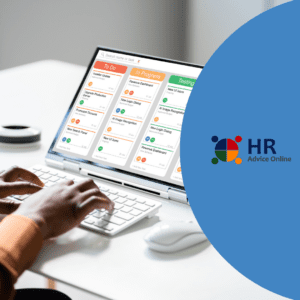Calculating employee wages – Getting it right
Calculating employee wages correctly involves several key steps to ensure compliance with legal requirements and fair compensation.
Here’s a guide to help you through the process:
- Hourly Employees: Multiply the number of hours worked by the hourly pay rate.
- Salaried Employees: Divide the annual salary by the number of pay periods in the year.
Always ensure that the details of the employee's rate of pay is kept up to date. If there is a change such as an annual increase to be applied, ensure these pay rate increases are passed on and implemented/updated in your payroll systems. Keep this information up to date, accurate and compliant. Ensure all calculations are correct.
- readily accessible to a Fair Work Inspector (FWI)
- legible
- in English.
- changed unless the change is to correct an error
- false or misleading.
- Identify the employee’s standard hourly wage.
- Identify Overtime Hours
- Apply the applicable Overtime Rate (per the industrial tool i.e the Award or Enterprise agreement).
- Calculate Overtime Pay
If you intend to make an agreement with your employee regarding accrual of time in lieu of payment of overtime, you must make an agreement prior to the employee engaging in the overtime. Arrangements such as these are only legal if the applicable Award or Agreement provides for same. The Award or Agreement may also provide other rules around payment of overtime or accrual of this time.
Add any performance bonuses, commissions, or other incentives to the base pay.
Ensure that employees always receive bonuses, commissions and incentives as agreed, whether this is by way of the employment contract or other agreement since. If there is a written agreement this must be paid to the employee accordingly. All payments must be taxed at the appropriate rate. All bonuses, commissions and other incentive payments must be paid where payable also under and Award, Agreement or other industrial instrument.
Superannuation contributions, taxation and other deductions such as employee authorised deduction or salary sacrifice arrangements.
Lawful deductions from an employee's wages include:
- Remitting superannuation to an employee’s superannuation fund
- Complying with salary sacrifice arrangements
- Deductions required by law such as income tax, student loan repayments and those ordered by a Court
- Deductions that are principally for the employee’s benefit and authorised by the employee in writing
- Deductions allowed under the employee's modern award or enterprise agreement and are reasonable
Ensure that the wages comply with relevant industrial awards, enterprise agreements, and the National Employment Standards (NES) in Australia.
Best practice is to ensure that every role is aligned to the appropriate Agreement or Award and the classification within that Agreement or Award. Where the employment is not able to be classified under an Agreement or Award, the employment may be Award and Agreement free. In this instance though there are still rules and various entitlements to which the employee ought to be aware of. For this reason, employees should be informed in writing of the appropriate Agreement or Award coverage or advised if they are not covered by an Award or Agreement.
Some Awards provide for the employer obligation to advise employees of their appropriate classification under the relevant Award so employees can verify properly their entitlements.
Utilise payroll software to automate calculations and ensure accuracy. Many software solutions also help with compliance and record-keeping.
By understanding wages and the rules that govern them, you will best ensure compliance and ensure your employees receive what they are entitled fostering a positive workplace environment. Knowing that you are compliant reduces any risk of underpayment and allows you to operate proactively and budget accordingly for a sustainable business future.
A manager’s guide to paying employees correctly checklist can be found in the resources on our website. Alternatively, if you have any questions or require any assistance with reviewing employee payments, please do not hesitate to contact us at [email protected] or 1300 720 004.




